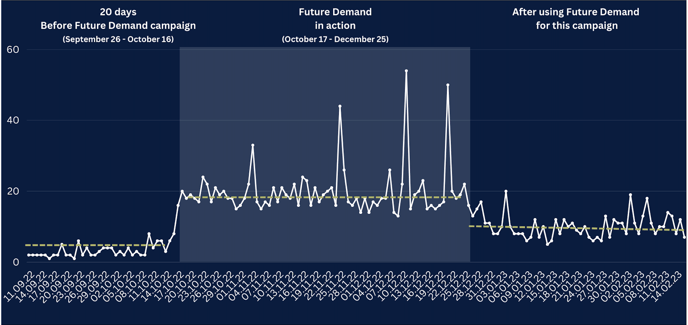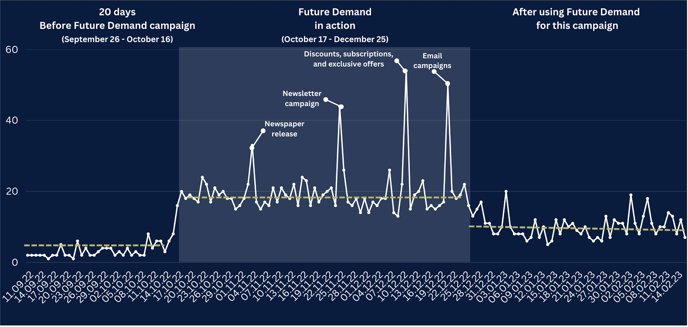How does the Future Demand's attribution model work
Future Demand utilises an advanced attribution model to enhance our client's marketing strategies and efficiently allocate resources.
This article is relevant for: FD Live
Future Demand seamlessly integrates with your Facebook Business account to collect key data related to your advertising campaigns. This includes user interactions such as ad clicks, impressions/reach, and various conversion metrics.
However, with the introduction of Apple's App Tracking Transparency (ATT) policy and similar privacy initiatives, there are severe limitations on what ad platforms can measure. This has led to major changes in the way conversions are calculated. The live entertainment industry was not alone in adapting to the challenges of ATT, shifting its focus from relying on third-party tracking to fostering direct relationships with attendees. Today, machine learning predicts how many conversions have taken place. Because it relies on huge data sets and statistical models, it works reliably for advertisers with higher ad spend, which many promoters do not have due to the nature of their business.
Future Demand offers an alternative solution designed to enable smaller promoters to gain again insight into the efficiency of their ad spend. By combining multiple data sources, such as ticketing data, conversion metrics, and aggregated behavioural data from ad platforms, and our custom industry-specific attribution models, Future Demand enables meaningful campaign measurement for performance marketing campaigns for almost any budget size (we tend to see limitations for campaigns with less than 300/400 EUR/USD ad spend and runtimes of less than 14 days).
Tailor-made algorithms analyse campaign data to determine the impact of each campaign on ticket sales.

Our attribution model also assumes that other marketing activities (e.g. email marketing campaigns, newsletters, group discounts, etc.) influence demand and need to be taken into account in any analysis. This means that when attributing credit to campaigns, the distinctive identifiable demand patterns of other marketing campaigns are excluded.
Excluding these other demand patterns removes potential noise or bias from the analysis an increases accuracy. This ensures that the insights from our attribution model are focused on the impact caused by Future Demand campaigns.

Our attribution model is a statistical model that depends on the relevance of the data points it receives. Our platform employs distinct models that analyze and incorporate different data points to produce valuable insights. While attribution models are crucial in understanding the customer journey and optimizing marketing strategies, they are just one piece of the larger puzzle. The success of a campaign is influenced by various factors beyond how credit is assigned to individual touchpoints. Thus, our model provides a more comprehensive view as it takes into account industry specific contexts.
Please note:
- As it is a statistical model campaigns shorter than two weeks can not be evaluated as we don't have enough data points to properly evaluate the campaign.
- If we don't have a comparison period (i.e. because sales started at the same day as the campaign) we can not properly evaluate the campaign due to how our attribution model works (see above).
- The more accurate sales data is uploaded the more accurate the evaluation will be. Here you find the different ways of uploading sales data (only relevant for FD Live Select).
We continually compare and evaluate our attribution model with other methods. The results show that our model is at least as accurate, and in some cases more specific because we have customized our model for the performing arts and live entertainment industry.
